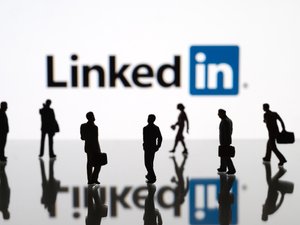
The digital advertising business faces a pressing problem — finding a way to target ads and measure their effectiveness without compromising people's privacy.
The founders of a recently unveiled startup think their San Mateo company has the solution.
Anonym Inc. has developed a way to take data from advertisers and ad networks and glean insights from it about the effectiveness of particular marketing messages. But it can do that while maintaining the anonymity of individual users, according to its founders, former Facebook Inc. advertising executives Graham Mudd and Brad Smallwood.
"We started Anonym because we believe the notion that you can't have both privacy and an efficient digital advertising ecosystem is a false dichotomy," Mudd, the startup's chief product officer, told a congressional subcommittee last week in testimony about a proposed privacy law.
Much to the consternation of privacy rights groups and privacy-minded individuals, digital advertisers have for years closely tracked the online activity and purchases of consumers, creating extensive virtual dossiers in order to personalize marketing messages to them. Advertisers, like Home Depot, say, have traditionally worked hand-in-hand with advertising network operators like Facebook and the developers and operators of third-party websites and apps to collect and share data about individual users.
In recent years, though, governments and companies have started to step in to give consumers more control over their data and essentially sever those connections. Laws such as the California Consumer Privacy Act and the EU's General Data Protection Regulation have given residents of those areas the ability to block such tracking, for example.
More damaging to the industry, though, was Apple Inc.'s move in 2021 to put in place a new feature that forced iPhone and iPad app makers to disclose in a pop-up message whether they were tracking users of their software and allow users to opt out. Many users chose to block such tracking.
Even though Apple had unveiled the feature a year earlier, giving advertisers some time to respond, the consequence of its move has been costly to the digital advertising business. Early last year, Facebook parent Meta Platforms Inc. estimated Apple's change would cost it $10 billion in lost sales for the year; the social media giant's stock plunged more than 25% in the wake of its report.
Such losses have made it even more pressing for the industry to come up with a way for advertisers and ad networks to track users and the effectiveness of digital ads when they may not be able to share data with each other or collect data across multiple sites and apps.
The pair couldn't do this at Facebook
Facebook actually started to work on solving this privacy problem before Apple launched its new anti-tracking feature, Smallwood, who was vice president of marketing science at the social media company for more than 12 years before launching Anonym, told the Business Journal. Various advertisers wanted to understand the effectiveness of their campaigns across different services, and Facebook was trying to help them out. But in order to do that, advertising competitors like itself and Google LLC would need to share information, something they didn't want to do, said Smallwood, who is Anonym's CEO.
"As it turned out, it wasn't really possible to create this technology inside of one of these companies," he said. "It was seen as putting them at a competitive disadvantage to one of their peers."
That's one of the reasons why Smallwood left Facebook in 2021. Mudd, who was vice president of product marketing, ads and business products at Facebook, left the company the following year, joining Smallwood as a co-founder of Anonym.
What Anonym does is essentially act as a middleman. Advertisers and ad networks each share their data with it rather than with each other. Anonym's software combines the data in a secure environment, gleaning insights about what kinds of messages were effective and with what types of people. It can then share those insights with the advertisers and ad networks.
But Anonym's software is designed to maintain the anonymity of individual users. It doesn't share raw data with either set of customers. After its software analyzes data, Anonym deletes information about individual users, Mudd said in his congressional testimony, which essentially unveiled the startup. It also adds statistical noise to the aggregated data it shares with advertisers and ad networks to make identifying individuals more difficult, he said.
Much of this is still theoretical. Anonym's 15-person team has developed its software but hasn't tested it yet with real data. That will happen soon. The startup has lined up companies to provide it with the testing data it needs, Smallwood said.
"We are still at the very early stages of this," he said.
Similarly, the company is still in the early stages of venture funding. It raised an $8 million seed round from undisclosed investors last year. Once it finishes testing its software and is ready to start selling to customers, Smallwood plans to raise more funds to grow Anonym's workforce.








